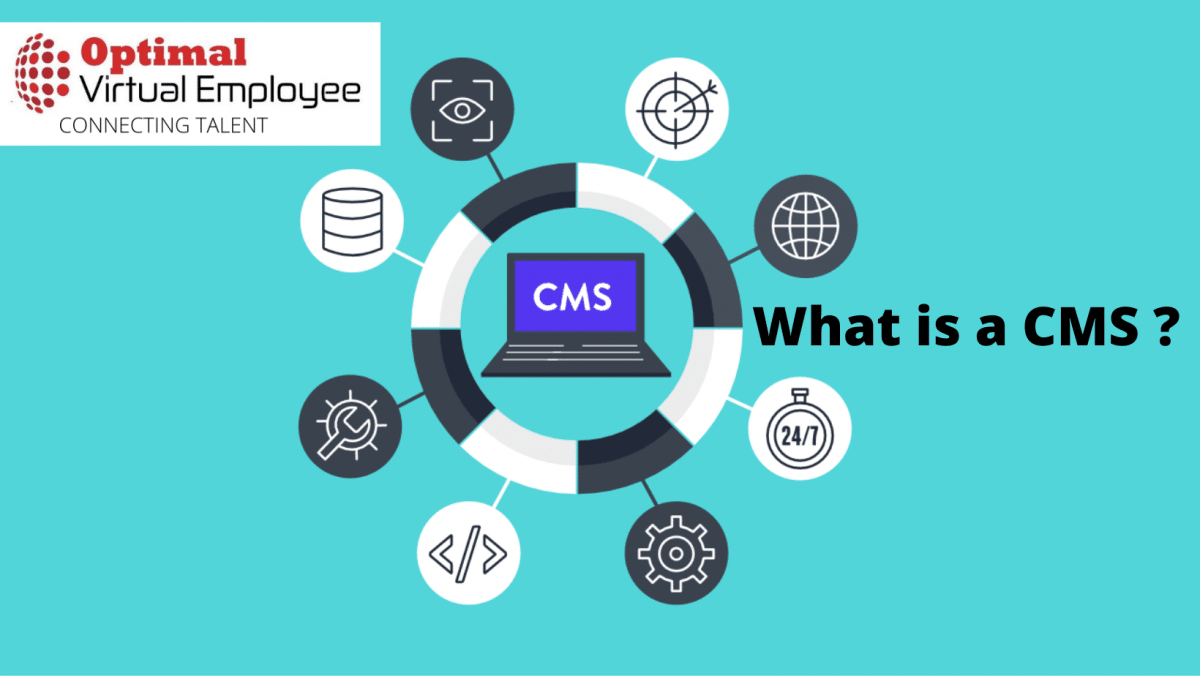Content is becoming one of the major ways for businesses to interact with their customers. It is not used only for marketing but has also become a core part of businesses and touches almost every department including sales, merchandising, and development.
A CMS helps one to implement an extensive content marketing strategy by making content related to your eCommerce website.
The developers are not involved in the process of making the content live and can simply make changes at the backend without disrupting the content publication.
A content management system (CMS) is the best solution that can make the website look informative with limited technical knowledge and resources. It takes away the stress that one takes for managing the website. If your business has a website then it must be static or dynamic. In a static website, the updates have to be hard coded with the help of standard web programming techniques. Whereas if you already have a content management system then the dynamic pages will update on their own. Investing in CMS saves both time and money. It is considered one of the most beneficial investments for your online business.
Few popular CMS platforms are mentioned below:
WordPress
It is a self-hosted platform that supports millions of other sites. One can efficiently build a WordPress website using their Gutenberg editor and then customize it by using thousands of plugins and themes available in the directory. If you want to add forms or live chat to your website or a theme that comes with a built-in visual builder and split testing. Then enjoy the leverage of plugins and themes provided by WordPress where you can create a unique design for your brand.
Joomla
If you’re looking for a lot of new functionalities to build an exemplary website, then you must try Joomla for once. Joomla is an open-source CMS that is used extensively. It has built-in multilingual support and many advanced options to manage the content. It is ideal for social networking websites. UIDAI is a multilingual website made by Joomla.
Drupal
It is a flexible CMS used by huge corporations and government agencies like NASA. But for Drupal one needs a full stack developer with good experience. Then only one will be able to enjoy the leverage of the powerful platform. It has 44,000 modules in its directory and thousands of free themes in the theme repository that helps to make a complex website. The complex website can easily handle large volumes and heavy traffic of data.
Sitecore
It is used for enterprise CMS, to create and deliver personalized websites, emails, social media posts, and mobile experiences. One can use its WYSIWYG editor to enable drag-and-drop functionality, and multilingual tools to scale up the level of content. The headless architecture provides relevant customer experiences that too across multiple channels. Those channels include websites, social media, voice, point of sale, and much more.
Magento
The self-hosted version is open-source and is more like Drupal in the eCommerce world. It is very secure and flexible but a bit difficult to adapt. One can take the advantage of all the built-in functionalities and the extensions provided by Magento.
Why does your website need a CMS?
- Easy solution for non-programmers
Content management systems like WordPress can be operated with little or no programming knowledge. Once the website is developed by a designer, then managing it for the future is very easy. Website content like images and texts can be smoothly inserted and uploaded on the specified page. The content editor is very similar to Microsoft Word thus can be easily managed.
- Efficient collaboration and access
CMS allows many people to have access to the website and collaborate for different projects. By using different accounts, multiple people can add, edit, or update the content of the site from their devices. It also stores all the online content in one place thus making it accessible for everyone. One can log in to the back-end of the website from anywhere thus makes the access very feasible.
- Commendable SEO tools and plugins
CMS offers numerous plugins and tools which help the site to reach a better rank on major search engines. These tools help to implement a basic SEO strategy to increase online traffic.
In CMS, WordPress is the only website that allows optimizing the content of your website for search engines. They use user-friendly plugins and tools right within the editing interface to help the user.
- Protects the data of the website
In today’s era, the last thing one wants for their website is to be hacked, especially eCommerce website owners. Websites are very vulnerable and targeted by hackers as they try to steal personal information. However, CMS is consistently tested by a force of exemplary developers and computer scientists to protect all their users against any potential security threat. In addition to this, countless plugins and tools contribute to increasing the security of a website.
- Affordable solution to all your problems
Maintaining a website can burn a hole in your pocket. Appointing a web designer and developer for making changes can add up a lot of costs. Other than that, it also costs your time as you have to wait to see updates live on your website. Investing in a CMS saves both time and money. As you don’t have to rely on a developer to make common changes.
Conclusion
Without a Content Management System, making relevant changes can be a grinding task. CMS allows users to upload and alter content with few clicks. General updates and other support requirements that maintain the website can be conducted instantly without the help of an outsider.
The ease of maintenance, minimal to no coding, instant changes, pocket-friendliness are the major benefits that help every business owner in the long term.









